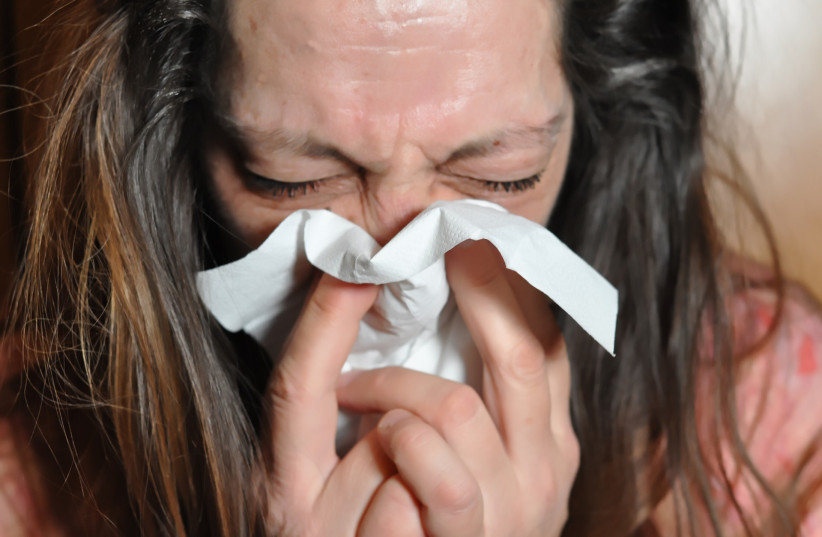While around the world, blistering cold snowstorms have been raging for weeks and especially in the last few days, winter has finally roused itself and arrived in Israel.
For some people, the cold season means feeling pain as the body can experience more than just frozen fingers, but an actual allergic reaction to the freezing weather.
"Cold urticaria," or allergy to cold, is an allergic reaction of the skin to exposure to cold, which happens following exposure to cold air or water. In some cases, symptoms can appear even after drinking something cold or eating food served cold.
Why does this happen?
In most cases, the cause of the allergy's development is unknown, but sometimes it is inherited which indicates a genetic predisposition. For some people, urticaria appears following a trigger that affects the immune system, such as a viral infection or certain types of cancer
For cold allergies, an "ice cube test", in which an ice cube is placed on the patient's skin for several minutes to see if it causes a red and swollen bump on the hand, is appropriate. If the applied area turns red and swollen, the diagnosis is cold urticaria.

It is unclear how widespread this phenomenon is exactly. one European study concluded that its prevalence in the population is about 0.05%. Allergic manifestations of rash are much more common than anaphylactic shock caused by cold urticaria.
Symptoms
The most common symptom of this allergy is a red and itchy rash on the skin, a burning sensation while the skin heats up, headaches, fatigue, anxiety, joint pain, swelling, etc.
In more severe cases it can cause anaphylaxis. In this condition, the blood pressure drops sharply and the airways close, which causes severe breathing difficulties.
Such a severe reaction will usually be caused by exposing the whole body to the cold. Also breathing problems, fainting and swelling of the tongue and throat may occur.
Treatment
An allergic reaction develops when, in response to the cold, the immune system releases chemicals called histamines, which cause an inflammatory reaction. Treatment is antihistamines and steroids and of course, avoiding colds by staying at home or wearing very warm clothes and not eating really cold foods.
